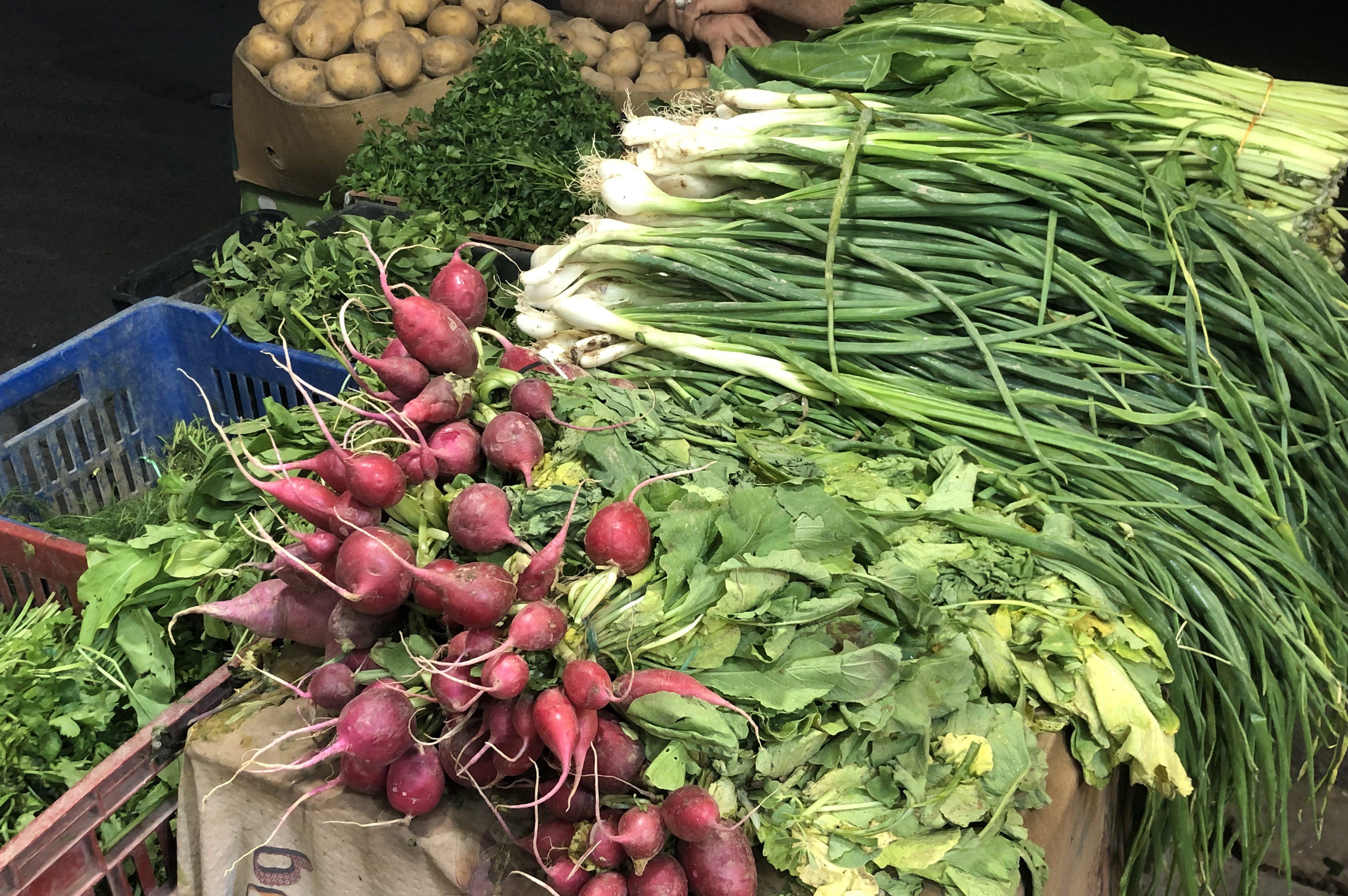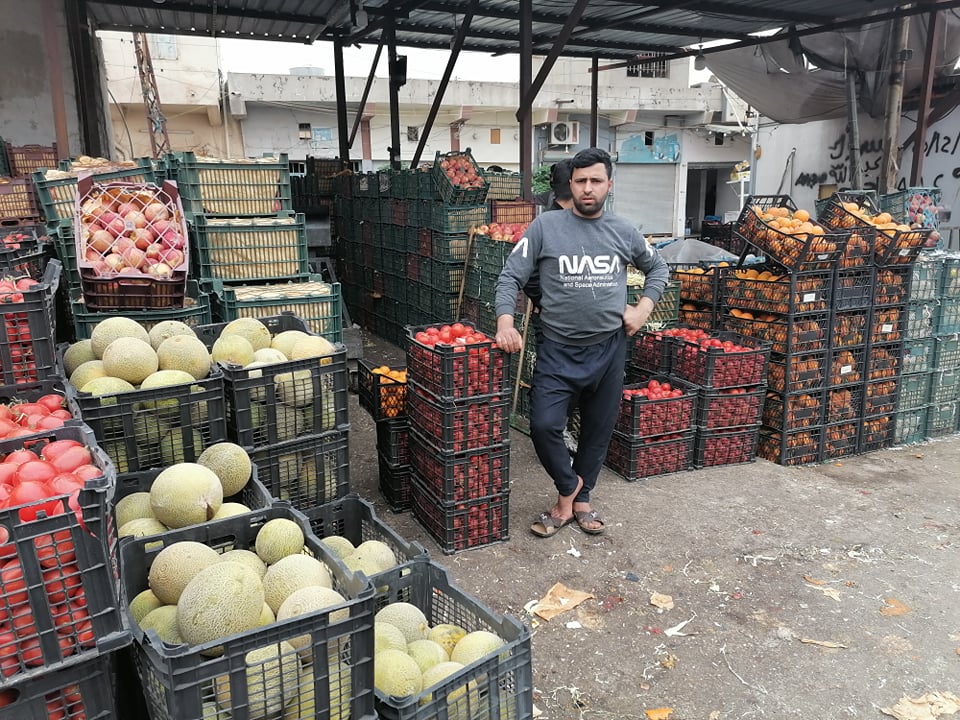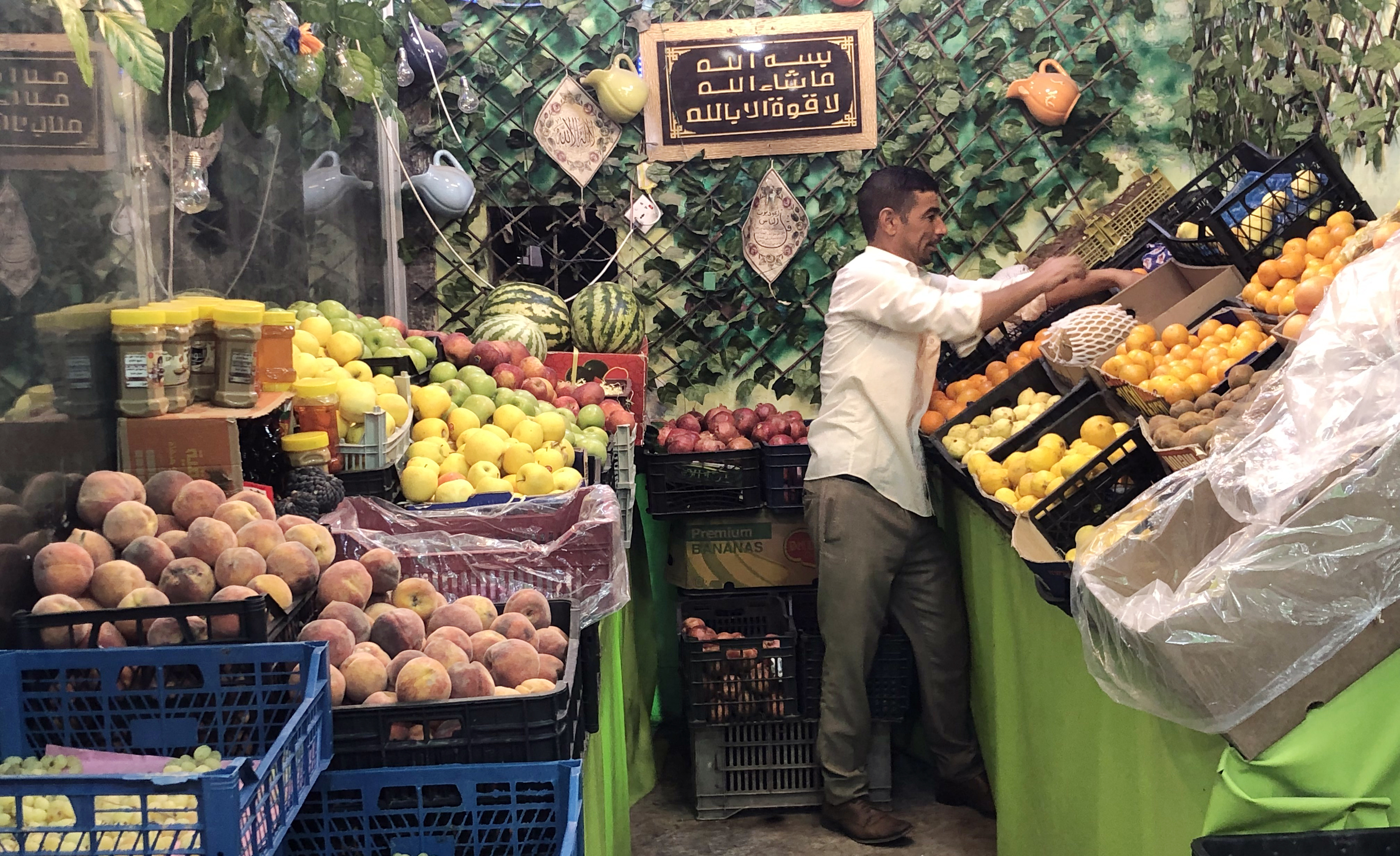Wazah Shahiri has not been so thrilled in years as he can market his farm products in a good price due to the import ban by ministry of agriculture on several types of fruits and vegetables though he is still cautious about government plans.
“We are afraid to go back to farming then we can’t market our products because of import lift,” Shahiri is concerned.
Shahiri is one of Kirkuk farmers hailed the procedure lately followed by the ministry of agriculture which banned import of potato on October 22nd as domestic production can cover local market demand and will offer support to increase production to a level that the surplus can be exported.
The ministry has outlined a set of procedures to stop attempt of smuggling potato and other banned products into Iraqi market, which is a big push for farmers to market their products without worrying about competition by imported fruits and vegetables.
“The ban should last because it has a positive impact for us as farmers.”
Kirkuk agriculture said about 30,000 donums (2,500 square meter) have been cultivated for eggplant, zucchini, tomato, cucumber, pepper, onion, okra, beans, melon and watermelon.
Iraq mainly relies on imports in most of its sectors especially food stuff and livestock which left the farmers face giant countries desperately, a matter that has turned the country into a purely consuming economy, pushing the farmers for trading and employment in the towns and cities.
The oil rich-city of Kirkuk, located 238 kilometers north of Baghdad, is an ethnically mixed province for 1.6 million Kurds, Sunni and Shiite Arabs, and Turkmen. It has long been at the center of disputed territories between Baghdad and Erbil.

Kirkuk, 2021- Greengrocery especially vegetables are easily produced in plastic agricultural houses as it is easily marketed on daily bases. KirkukNow
KirkukNow has found out that prices of some local fruits and vegetable are more than double compared to imported grocery.
Abu Falah, a greengrocer in Kirkuk, said the import ban has raised prices. “One KG of good Iranian tomato was for IQD500 (Wholesale) and we sold it for for 750IQD while the domestic costs 800 and we are obliged to sell a KG for 1,500 ($1).”
He added that a KG of imported potato costed 300 while domestic is for 650IQD.
A KG of imported potato costed 300 while domestic is for 650IQD
“Unless the government supports local farmers to cover local market by providing transport, pesticides, fertilizers and others, the prices won’t be stable.”
Some locals prefer domestic products for its quality and flavor compared to cheap imported products.
“It’s true domestic products are higher compared to the imported yet I think we also have to support the domestic since the profits go to farmers who can provide better products,” said Ali Sabahi, a resident of Kirkuk.
He called on the government to provide more support for the farmers in order to boost local production.
In April prices for over 20 types of fruits and vegetables passed double in Kirkuk and the disputed territories due to ban of import from neighboring Iran and Turkey by ministry of agriculture in support of local farmers and their domestic products.
The decision effective from Early April aims at marketing local fruit and vegetables during its harvest in support of farmers in several Iraqi provinces in face of Iranian and Turkish imported agricultural products.
Shahiri urges the government to stick to its import ban.
“Once the market is not responsive, farmers turn into other businesses. Besides, the government has to provide water and agricultural medicines.”
Rainfed products has suffered hardly due to lack of dams and alternative water resources.
Kirkuk agriculture has set an annual plan to plant one million donums for crops all over the province yet only 700,000 donums were cultivated, said Zuher Ali director of Kirkuk agriculture office.
He expected 350,000 tons of crops for 2021 while in 2020 over 600,000 tons were produced due to poor rainfall. Kirkuk agriculture study is based on rainfall for 2021 which drooped to 104mm, the least in the last 20 years, compared to 283 mm in 2020 and 535 in 2019.

Kirkuk local officials elaborated the ban includes some types of meat, fish and chiken as well.
Khanda Kirkuki, media officer of Kirkuk agriculture said the purpose behind the import bn is to open the market for farers.
“Potato import is banned in order to rely on domestic product. The ban covers cucumber, eggplant, zucchini, pepper, green beans, dates and honey as well.”
The ban includes eggs, frozen and fresh fish and chicken.
Security checkpoints were assigned to confiscate any items covered in the import ban list.
“In the last few months, we have managed to confiscate hundreds of vehicles trying to take such items into Kirkuk market,” a security source anonymously said.
“All roads used by those smugglers are shut now.”
Kirkuk was one of the fertile provinces of Iraq as its products covered neighbor provinces head of Islamic State ISIS attacks back in 2014. It has managed to recover in the last few years yet poor rainfall has dropped its production into half especially wheat and barley.





